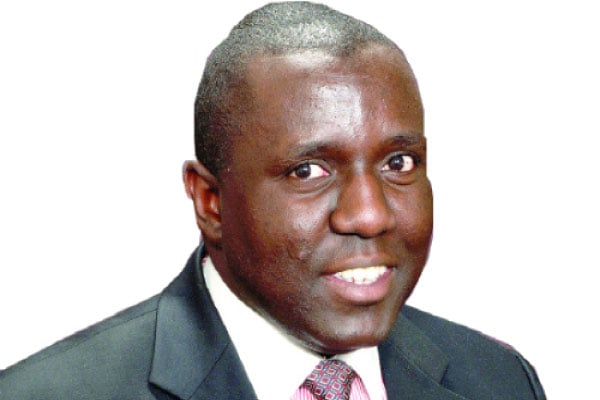Prime
Vinci coffee enterprise runs into headwinds, stalls in Parliament

Author: Mr Karoli Ssemogerere is an Attorney-at-Law and an Advocate.
What you need to know:
- First, where is the Minister of Trade and Industry, Mr Francis Mwebesa, a veteran industrialist, agro-entrepreneur and former CA Delegate?
A lot has been said about the proposed sweetheart deal to erect and operate a coffee processing factory to an Italian investor of interest. The timing could not have been worse for the coffee sector.
In coffee processing, the national coffee processing factory in Bugoloobi, Kampala, operated by the Coffee Marketing Board has been defunct for more than 20 years. Today this space billows out all sorts of carcinogens from leather tanning and other enterprises. The actual building was once let out to a large coffee farmer but like most public land the issue of its ownership and title are in question.
In the Gadaffi-African capitalism era, there was a proposal for Uganda to partner with Libya to set up a coffee processing plant on land owned by Uganda Coffee Development Authority in the neighbourhood of the main Uganda Railways Corporation terminal. This capital intensive plan to produce soluble coffee was a solution to the “robusta problem”. 8/9ths of Uganda’s coffee output is robusta. Uganda’s robusta is prized for its high caffeine content.
The taste of Uganda’s coffee cup is boosted on some palates by large screen sizes associated with areas with heavy rainfall. At the top of the list of Screen 18 and above are districts like Kalangala, Buvuma, but with technology these large screen sizes may come from heavy rainfall districts like Gulu which has the highest total annual precipitation in Uganda, followed by Kalangala and Buvuma.
Revamping this domestic enterprise as a strategic asset should be a national priority, but alongside other strategic investments in coffee houses which have set up shop in Uganda as back to back operations that leave the Ugandan farmer marginalised.
Coffee farmers only collect about 2 percent or less of the retail price of the coffee cup. Uganda’s coffee has been abused in the global market as a resource to build up less affable coffees notably Vietnam and Brazil. Vietnam’s coffee is low altitude, low caffeine content while Brazil robustas grown on fazendas has poor taste partly due to the mechanical exploitation of the crop.
Large European coffee houses have set up shop and bought out Ugandan entrepreneurs in this game.
As European entities, they can export and process Ugandan coffee free of processing taxes which are a market barrier to Ugandans say setting up factories in Europe. Western tax regimes are even more challenging if one factors in payroll taxes [social security, unemployment, health insurance levies].
Decision makers are frustrated by this state of affairs. It is an open secret that the foreign exchange squeeze and collapse of coffee prices between 2016 and 2021 are a pressing macroeconomic problem. Rising coffee prices for the green bean are a temporary phenomena tied to Brazilian frost conditions. The size of the budget envelope by all standards is an indictment of layers of failed economic policies that drew attention away from agriculture, and also diverted agriculture from traditional to non-traditional exports. Pressed for foreign exchange, Uganda has reverted to a more traditional understanding of concepts like comparative advantage. Uganda’s geographical position astride the equator in two rainfall systems supports this proposition.
In 2022, political actors are feeling the pressure of the Covid pandemic. Second, there is an exhaustion with the execution of big economic moves in the country that favour foreigners against nationals, a situation that isn’t obtained in Kenya and Tanzania where the role of the nationals in the economy is felt and seen. It is true that crony capitalism is a fact of political life and existence. But that role is exaggerated in our country. From Danze Enterprises to Vinci Coffee this has been the norm. Danze was set up to trade and Vinci Coffee is trade and processing.
To cool political tempers we need to hear from voices outside the Ministry of Finance. First, where is the Minister of Trade and Industry, Mr Francis Mwebesa, a veteran industrialist, agro-entrepreneur and former CA Delegate? Has he made his maiden speech to Parliament?
Where is the minister in charge of Industry, Cooperatives or even Labour given that the content of the law touches on the mandate of NSSF? At least the Minister of Agriculture supported by his technocrats let the cat out of the bag disassociating himself with the concession.
The key issue by the MPs is lack of consultation in arriving at a key policy decision that directly touches the lives of 15 million people.
Mr Ssemogerere is an Attorney-At-Law and an Advocate. [email protected]




